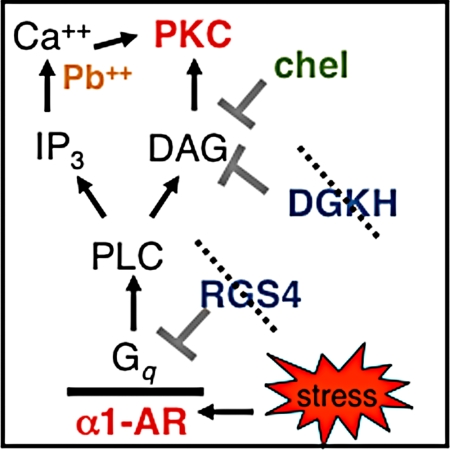Fig. 1.
Stress results in elevated catecholamine release in the prefrontal cortex. Increased noradrenergic signaling activates the PI-PKC cascade via Gq-coupled α1-AR. RGS4 and diacylglycerol kinase, including DGKH, inhibit this pathway. Genetic studies indicate that RGS4 and DGKH are compromised in schizophrenia and bipolar disorder, which would lead to overactivation of PKC signaling. Lead (Pb++) mimics Ca2+, a necessary cofactor for the activation of PKC. Thus, PKC is likely dysregulated in stress-related disorders such as PTSD as well as in lead poisoning, bipolar disorder, and schizophrenia. PKC dysregulation may be related to pathology and symptomology as overactive PKC leads to prefrontal cognitive deficits in primates and rodents and spine loss in vitro. CHEL inhibits PKC isoforms activated by this cascade by blocking the phorbol ester binding site.

